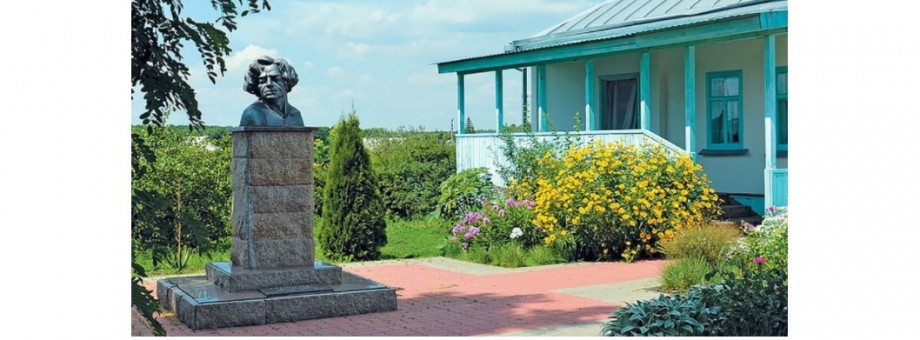VASILY EROSHENKO: "HE LIVED, TRAVELED, WROTE"

Famous writer Vasily Eroshenko bequeathed to write such words on the pedestal of his grave. This last request was fulfilled by the writer's fellow countryman, the Stary Oskol artist-sculptor V. Kolesnikov.
Eroshenko was called the Unique Man, the Man of the World. During his life, he visited more than twenty countries. And wherever he traveled, wherever he was, he worked, helped the local population, leaving behind good deeds and a bright memory.
At the beginning of the last century, Vasily Eroshenko rewrote the textbook in Esperanto in Braille, which made it possible for the blind to learn foreign languages. A modest man filled with compassion for people rendered an enormous service to the blind in many countries of the world, including Turkmenistan.
V. Eroshenko - writer, poet, Esperantist, musician, traveler, typhlopedagogue was born in 1890 in the village of Obukhovka, Starooskolsky district. At the age of four, Vasily loses his sight as a result of a serious illness. In 1899 he was assigned to an educational institution of the Moscow Society for the Education and Training of Blind Children. Eroshenko receives the profession of a musician.
Thanks to this, Eroshenko's first trip abroad to England took place, where he studies at King's College at the Academy of Music for the Blind. After that, he travels around the world, has traveled half the world.
Since 1935, V. Eroshenko has been living and teaching for ten years in Kushka, in a boarding school for blind children organized by him. He was also the first director of this educational institution. For the first time in history, Vasily Yakovlevich developed an alphabet in Braille in the Turkmen language and achieved the publication of textbooks in Moscow for his school.
He believed that the upbringing of blind children should be based on the principle of industrial training, for this, workshops were organized at the school. He paid a lot of attention to the aesthetic education of students - music, reading literature, participation in music circles. In addition to traditional activities, children grazed cattle, worked in the garden, looked after bees. Eroshenko took his young pupils on excursions to Mary with an indispensable visit to the cinema. He himself took them on local history trips to the surrounding villages, introducing them to nature and people.
Eroshenko strove to pass on to his children his life experience, all his knowledge, sharing with his pupils everything that would help them in life. Although he was blind from childhood, he often walked long distances on foot unaccompanied. He swam well, played many musical instruments, played checkers excellently. Once he played a draw in chess with the grandmaster Alyokhin himself. Subsequently, Eroshenko mastered 11 foreign languages.
In 1945, after the end of the war, Eroshenko returned to Moscow, where he continued his educational activities. Along with other languages of the world, he teaches children the Turkmen language. The name of V. Eroshenko is well known in Japan, China, Burma and India. They remember him in Turkmenistan too.
During R. Tagore's visit to Japan, Eroshenko, who was there at that time, often met with the Indian poet and philosopher. There was a heated debate between them about spirituality and the interaction of the cultures of the West and India.
In 1952, already seriously ill, Vasily Eroshenko returned to his native village Obukhovka. On December 23 of the same year, Vasily Yakovlevich died.
Nowadays, the possibilities of the blind are expanded by the achievements of science and technology, however, using technical means, not every one of them dares to travel around countries throughout his life. Eroshenko's trips were not idle, for each a specific goal was determined: study, organization and assistance in the life of the blind, the creation of schools for blind and deaf children. In fairness, it should be added that not even every physically healthy person will be able to achieve such results as Eroshenko.
"GA" Correspondent
Vasily Eroshenko: "He lived, traveled, wrote" (turkmenistan.gov.tm)


 NEWS
NEWS